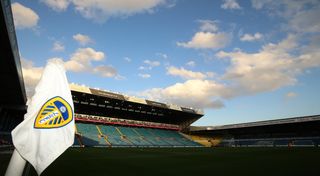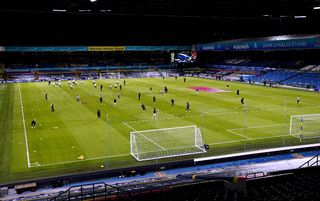Leeds United reveal ambitious stadium development project to rival Manchester City and Newcastle United
Leeds United's modern history has been a rollercoaster of highs and lows, with their potential often left unfulfilled.

Leeds is England’s biggest one-club city and the club’s loyal fans had to live through relegations, point deductions, administration and a string of disastrous ownership situations before they were finally able to return to the Premier League under Marcelo Bielsa in 2020.
Leeds United announce Elland Road stadium plans
RELATED STORIES

Derby Draw: Late Musiala goal cancels out Gittens' solo stunner in Borussia Dortmund vs Bayern Munich

Everton manager Dyche expresses frustration over Onana sale

Man City turn to De Bruyne for Arsenal showdown

Atletico Madrid Criticizes Decision Allowing Barcelona's Dani Olmo to Play Amid Growing Dissent

Controversy Surrounds Premier League Referee David Coote Over Alleged White Powder Incident at Euro 2024

Miami Heat's main players
LATEST NEWS

Premier League title race: Gary Neville and Jamie Carragher at odds over champions

How are Tottenham youth players performing in FM2022?

Mainz Chief Heidel Delighted for Tuchel's Appointment as England Manager

Trossard praises Leicester goalkeeper Hermansen for impressive performance - Paul Vegas

Luneng players become national team captains, demonstrating their strength and leadership skills

Arsenal target Gyokeres reveals future plans with Sporting CP

Mallorca fan convicted for racist abuse of Vinicius Jr and Samuel Chukwueze

Rio Ferdinand shares insights from Declan Rice about Arsenal team-mate Kai Havertz